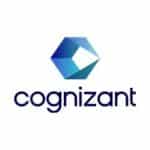World
Class Instructor
1:1 with
Industry Expert
400+
Global Hiring
55%
Avg. Salary Hike
- Overview
- Course Details
- Syllabus
- FAQ
Acquire Essential MSSQL Skills: Master Database Management, Earn Certification, Elevate Your IT Career!
Elysium Academy stands out as a leader in the database management domain, offering a comprehensive program that ensures participants efficiently manage, interpret, and utilize data like never before. Our program is designed to provide a deep understanding of MSSQL and its applications.
2.2
Version
45 Hours
Duration
10 Hours
Theory
35 Hours
Practical
Version
2.2
Duration
65 Hours
Theory
12 Hours
Practical
65 Hours
- Industry Based Projects
- Personalized coordinator.
- Trainer feedback.
- Trainer availability post sessions.
- Get your staff certified.
- Certificate from governing bodies.
- Recognized worldwide
- Hands on assignment
- Master MSSQL fundamentals, including database creation, queries, and data manipulation.
- Dive into advanced concepts such as performance tuning and optimization.
- Harness powerful tools like SSIS for data integration and ETL processes.
- Visualize data effectively using SSRS.
- Implement security measures and ensure compliance with industry standards.
- Explore backup and recovery techniques to safeguard your data
Top companies offer this course to their employees
Course was selected for our collection of top-rated courses trusted by businesses worldwide.





Salary
PER ANNUM
₹ 4.5 L
Job Growth
Current Month
12%
Offer Jobs
2026
10,000
The Core MSSQL program offers learners the opportunity to master one of the most crucial database management systems used by professionals today. Begin your journey in the field of database management and learn MSSQL, performance tuning, and data integration with the guidance of experienced instructors. Learners will emerge prepared to tackle real-world database challenges. Here are some of the skills you will need to excel in database management
The Core MSSQL Course teaches you to master the concepts of Microsoft SQL Server. Through this training, you will learn database management, data manipulation, performance optimization, advanced querying, and data security.
- Database Management is the backbone that supports data-driven infrastructure.
- Database Management encompasses the comprehensive study of data storage and retrieval systems.
- Data Cleansing ensures data quality by removing duplicates and inconsistencies.
- Database Administrators understand database systems and derive valuable insights from data.
- Database Management is the foundational layer upon which robust data solutions and applications are built.

Our Training Program Benefits
- Live, interactive training by experts.
- Curriculum that focuses on the learner.
- Challenge-based, hands-on project.
- Opportunities for team building.
- Cost- saving training.
- Convenient for your employees.
- Completely tailor-made curriculum.
Chapter-1 Getting Started MSSQL
- What is MSSQL?
- What is the difference between MSSQL and MySQL?
- Purpose of MSSQL
- Versions of SQL
- Advantages and drawbacks
- Installation Setup
- What is a database?
- What are tables?
- Create, Alter and Drop Database
- Create, Alter and Drop Table
- Backup and Restore a Database
- RDBMS
- ER Model
- Hands-on Create Database and Tables
- Data Types
- Constraints
- Foreign Key Constraints
- Unique and Check Constraint
- Hands-on Data Types and Constraints
- Quiz
- What is Normalization?
- First Normal Form
- Second Normal Form
- Third Normal Form
- Practically Normalizing Tables
- Hands-on Normalization
Chapter-2 MSSQL Commands
- What is DDL?
- Purpose of DDL
- CREATE Table
- ALTER Table
- TRUNCATE Table
- RENAME
- DROP
- Hands on DDL
- What is DML?
- SELECT
- UPDATE
- DELETE
- INSERT
- Hands on DML
- What is DCL?
- Purpose of DCL
- REVOKE
- GRANT
- Hands on DCL
- WHERE
- DISTINCT
- ORDER BY
- GROUP BY
- HAVING
- FROM
- Hands on MSSQL clauses
Chapter-3 Visualizations
- Plotting with matplotlib
- Bar charts
- Pie charts
- Scatter plots
- Box plots
- Histogram
- Bubble Chart
- Heat maps
- Graph/line graph
- Geographical data
- Plotting with seaborn
- Histogram with grid
- Distplot
- Pairplot
- Scatter plots
- Box plots
- Lmplots
- Histogram
- Challenge: Visualize titanic dataset
- Feature Extraction
- Feature Selection
- EDA
- Pairplot
- Scatter plots
- Box plots
- Lmplots
- Histogram
- Challenge: Visualize titanic dataset
Chapter-4 Machine Learning
- Al vs ML vs DL
- Application of machine learning
- How do machine learns
- Types of Machine learning
- Supervised Learning
- Un-supervised Learning
- What is Native Bayes?
- Types of Naive Bayes
- IRIS Classification
- Data Processing
- Train and create model
- Performance Estimation
- Analyse and create confusion matrix
- Ordinary Least Square and Regression Errors
- Data Processing
- Train and Test Model
- Test the model and Predict Y Values
- R-Squared and its Importance
- Score and Get coefficients
- Calculate RMSE (Root Mean Squared Error)
- Plot the predictions
- Ordinary Least Square and Regression Errors
- Data Processing
- Train and Test Model
- Test the model and Predict Y Values
- R-Squared and its Importance
- Score and Get coefficients
- Calculate RMSE (Root Mean Squared Error)
- Plot the predictions
- Ordinary Least Square and Regression Errors
- Data Processing
- Train and Test Model
- Test the model and Predict Y Values
- R-Squared and its Importance
- Score and Get coefficients
- Calculate RMSE (Root Mean Squared Error)
- Plot the predictions
- What is SVM?
- SVM kernel types
- Problem: IRIS Classification
- Data Processing
- Train and create model
- Performance Estimation
- Analyse and create confusion matrix
Chapter-5 Algorithms
- What is Logistic Regression?
- Problem: Heart Disease Prediction
- Build Model
- Performance Estimation
- Analyse and create confusion matrix
- What is decision tree?
- Decision Tree Parameters
- Problem: IRIS Classification
- Data Processing
- Train and create model
- Evaluate Model
- What is random forest?
- Ensemble Learning
- Bagging and Boosting Classifiers
- Problem: Cardio Vascular Disease
- lmplementation
- Evaluate Model
- Class
- Objects
- Constructors
- Constructors
- Encapsulation
- Inheritance
- Polymorphism
- Super and this Keyword
- Abstraction
- Inheritance
- What is KNN?
- KNN parameters
- Problem: Cardio Vascular Disease
- Data collection and preprocessing
- lmplementation
- Evaluate Model
Chapter-6 Evaluation Metrics
- Evaluate Accuracy
- Classification metrics
- What is Threshold and PHAPTER Adjusting Thresholds
- AUC ROC Curve
- Why to reduce dimensions and Importance of PCA?
- Steps to calculate PCA
- Implementation of PCA
- Visualization
- What is Ridge regression?
- Implement Ridge Regression
- Plot Ridge Regression Line
- Lasso Regression or L1 Penalty
- lmplement lasso Regression
- Plot lasso Regression Line
- What is over fitting?
- How to avoid over fitting?
- What is under fitting?
- How to avoid under fitting?
- What is Cross Validation?
- How Cross Validation Works
- Prepare for Cross Validation
- Parameter and implementation of Cross Validation
- Understand the results of Cross Validation)
- Hands On - Analyse the Result
Chapter-7 Hypertunning Model and Clustering
- What is Hyper parameter Tuning?
- Grid Search and Randomized Search Approach
- GridSearchCV Parameters Explained
- Create GirdSearchCV Object
- Fit data to GridSearchCV
- Understand GridSearchCV Results
- GridSearchCV using Logistic Regression
- GridSearchCV using Support Vector
- Randomized Search using random forest
- Select Best Model
- Randomized Search
- Model Selection Summary
- What is Clustering?
- How the clusters are formed?
- Problem Understanding: Customer Segmentation
- Get, Visualize and Normalize the data
- Import KMeans and Understand Parameters
- Understanding KMeans++ Initialization Method
- Create Clusters
- Visualize and create different number of clusters
- Understand Elbow Method to Decide number of Cluster
- Implement Elbow Method
Chapter-8 NLP and Recommendation System
- What is NLP
- Application of NLP
- Remove punctuation
- Tokenize
- Remove stop words
- Stem words
- Lemmatize
- Padding
- Part of Speech Tagging
- Name Entity Relationship
- Sentiment Analysis
- Read and preprocess data
- NLP techniques
- Tokenization
- Tokens to vectors
- Naive Bayes
- Logistic Regression
- Sentiment Analysis
- Evaluate Metrics
- What is Recommendation System?
- How Do Recommendation Works?
- Types of Recommendation
- What is Content based recommendation?
- Advantages and drawbacks
- Hands on Content based recommendation code
- What is Collaborative filtering?
- Advantages and drawbacks
- Kinds of collaborative filtering
- Hands on collaborative filtering code
- What is hybrid recommendation?
- Advantages and Drawbacks
Chapter-8 NLP and Recommendation System
- What is NLP
- Application of NLP
- Remove punctuation
- Tokenize
- Remove stop words
- Stem words
- Lemmatize
- Padding
- Part of Speech Tagging
- Name Entity Relationship
- Sentiment Analysis
- Read and preprocess data
- NLP techniques
- Tokenization
- Tokens to vectors
- Naive Bayes
- Logistic Regression
- Sentiment Analysis
- Evaluate Metrics
- What is Recommendation System?
- How Do Recommendation Works?
- Types of Recommendation
- What is Content based recommendation?
- Advantages and drawbacks
- Hands on Content based recommendation code
- What is Collaborative filtering?
- Advantages and drawbacks
- Kinds of collaborative filtering
- Hands on collaborative filtering code
- What is hybrid recommendation?
- Advantages and Drawbacks
Chapter-9 Deep Learning
- What is Neuron and Artificial Neural Network?
- How Artificial Neural Network works?
- What is Keras and Tensorflow?
- What is a Tensor in Tensorflow?
- Installing Keras, backend and Tensorflow
- Keras Model Building and Steps
- Layers - Overview and Parameters
- Activation Functions
- Layers - Softmax Activation Function
- What is a Loss Function?
- Cross Entropy Loss Functions
- Optimization - What is it?
- Optimization - Gradient Descent
- Initializers - Vanishing and Exploding Gradient Problem
- Layers - Initializers explained
- Problem Understanding: Disease Prediction
- Read and process the data
- Define the Keras Neural Network Model
- Compile the Keras Neural Network Model
- Evaluate the result
Chapter-10 Projects
- Problem understanding: Loan Approval Prediction
-  Read and preprocess data
- Data splitting
- Classification - Naïve Bayes
- Classification – Support Vector Machine
- Classification - Random Forest
- Classification - Logistic Regression
- Train the model
- Evaluate performance metrics
- Problem Understanding : Zomato Restaurant Review
- Read and preprocess data
- NLP
- Data Splitting
- Classification - Naïve Bayes (Multinomial)
- Classification - Support Vector Machine
- Classification - Random Forest
- Classification – Decision Tree
- Classification - Logistic Regression
- Train the model
- Evaluate performance metrics
- Visualization using matplotlib and seaborn
- Problem Understanding : Product Recommendation
- Read and preprocess data
- Collaborative filtering
- Content based filtering
- Recommend the product
- Evaluate metrics
What is the Core MSSQL Course offered by Elysium Academy?
The Core MSSQL Course at Elysium Academy teaches you the fundamentals of SQL Server, including database design, query optimization, and data management. This course is ideal for those looking to specialize in database administration and development.
What makes Elysium Academy the best Core MSSQL training center near me?
Elysium Academy excels in Core MSSQL training due to its comprehensive curriculum, hands-on labs, and expert faculty who provide deep insights into SQL Server administration and development.
What is the duration of the Core MSSQL course?
The course spans 8 weeks, combining live sessions with self-paced learning materials.
Who is the course intended for?
This course is designed for IT professionals, database administrators, developers, and anyone looking to enhance their MSSQL skills.
What are the prerequisites for enrolling in this course?
Basic knowledge of databases and SQL is recommended, but the course is suitable for both beginners and experienced users.
What topics are covered in the course?
The course covers Database Creation, Advanced Query Techniques, Data Visualization, Performance Optimization, Data Security, and Backup and Recovery.
Will I receive a certificate upon completion?
Yes, participants will receive a certificate from Elysium Academy, recognized by governing bodies and widely acknowledged in the industry.
Is there any hands-on training included?
Absolutely, the course includes hands-on assignments and industry-based projects to ensure practical understanding and application of MSSQL skills.
Are there any opportunities for personalized support?
Yes, you will have a personalized coordinator and access to trainer feedback, with trainers available for queries post-sessions.
How can this course benefit my career?
Mastering MSSQL can significantly enhance your database management capabilities, making you more valuable in your current role and opening up new career opportunities.
What if I miss a live session?
All live sessions are recorded and made available to participants, so you can catch up at your convenience.
Can I access the course materials after completion?
Yes, you will have lifetime access to all course materials, including recorded sessions, resources, and assignments.
Course Audio Explanation (தமிழ்)

- Core MSSQL Course Crash
- Duration: 45 Hours
- Level: Beginner
- Days: 45 Days
- Chapters: 10
- Language: English
- Certifications: Yes
- Code: EAPL/CRASH/CRTC16
- Course Code: EACMS
- Sub Category: Database Management Training Course
Thank you!
We will contact you soon.
Core MSSQL Features

Database Management
Master the fundamentals of database creation, maintenance, and management. Learn how to efficiently handle large datasets and ensure data integrity.

Advanced Techniques
Develop expertise in writing complex SQL queries. Understand subqueries, joins, and set operations to retrieve and manipulate data effectively.

Optimization
Discover techniques to optimize database performance. Learn indexing, query optimization, and best practices for efficient data retrieval.

Expert Support
Our technical support staff is available 24/7 through a ticketing system to address any inquiries you might have.

Security & Compliance
Ensure your databases are secure with advanced security practices. Understand encryption, access controls, and compliance with industry standards.

Data Integration
Gain skills in integrating data from multiple sources. Learn about ETL (Extract, Transform, Load) processes and tools to streamline data workflows.
Our Latest Blogs
Best Software Development Courses 2026
Tech Career 2026: Best Software Development Courses in Madurai The world is changing rapidly, and technology is at the center…
Python Course in Coimbatore: Job-Oriented Training with Placement Support
If you look at today’s job market, one skill consistently stands out across IT, data science, AI, automation, and web…
Best Artificial Intelligence Course to Build Your AI Career
Table of Contents Artificial Intelligence Course is no longer a futuristic concept—it is actively transforming how the world works…
Related Courses
SAP Materials Management
Master both Core and Advanced Java programming skills with our comprehensive training course, designed to take your expertise.
SAP High-Performance Analytic Appliance
Master both Core and Advanced Java programming skills with our comprehensive training course, designed to take your expertise.
SAP Advanced Business Application Programming
Master both Core and Advanced Java programming skills with our comprehensive training course, designed to take your expertise.

Recommend your friends/colleagues and earn gift vouchers worth up to INR 1000/-!
Invite friends to join our community, and receive valuable gift vouchers as a token of appreciation for each successful referral. Spread the word about our referral program today and start earning rewards!































